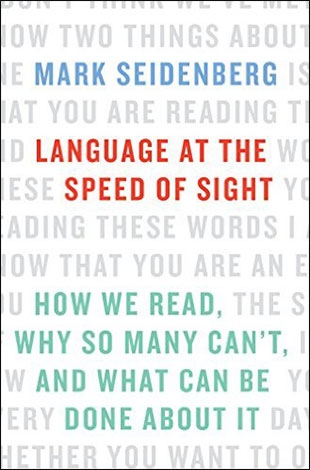"Speech evolved in the species.
"Reading is a cultural artifact, like money.
"Speech is universal: in the absence of pathology, everyone learns to talk.
"Reading is like Wi-Fi: only some people have it.
"Children learn a spoken language through interactions with other language users.
"Reading is taught, beginning with alphabet songs and bedtime stories and continuing through several years of schooling.
"Speech is fast fading: the signal is gone once it is produced.
"Writing systems were created as a way to transcend the impermanence of speech. This text is not disappearing as you read it.
"Speech is messy. Producing a coherent utterance is a complex action: deciding what to say, picking the words and grammatical structures that express the intended meaning, loading a program to articulate the sequence of words, and then running the program, all done on the fly. The process is so demanding that the end product is littered with dysfluencies and errors.
"Writing is cleaner than speech because it isn't produced under the same time constraints and can be edited. Speech is more like a rough draft, text like the corrected version.
"That one has some obvious exceptions. Some formal modes of speaking are grammatically immaculate, and informal writing can be messy. A television performer such as Stephen Colbert is a professional talker skilled at producing fluent, well-formed utterances most of the time. Conversely, there is Wikipedia, the Great Wall of Words, a system for creating texts that are full of grammatical, spelling, and usage errors.
"Finally, speech and reading are opposites with respect to who controls the rate at which comprehension can occur. Readers decide how rapidly to proceed. Listeners are at the mercy of speakers performing the difficult task of producing coherent, mostly fluent utterances. In exchange for ceding control to the speaker, the listener gains one advantage: speech affords more opportunities for clarification. Circumstances permitting, speakers can be asked about what they have said, whereas readers cannot query authors."
